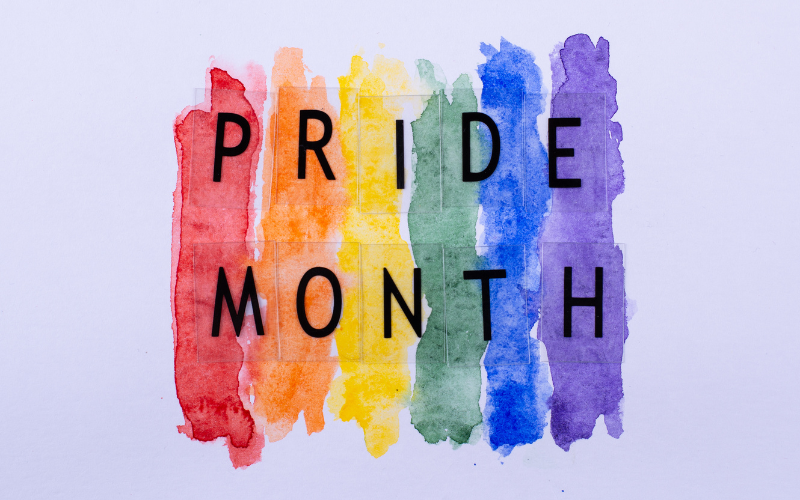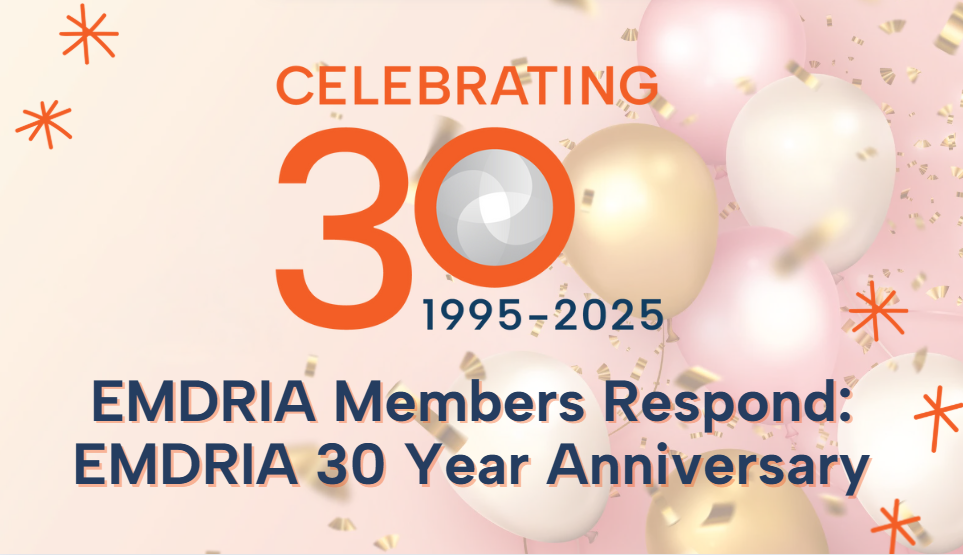EMDR therapists can celebrate LGBTQ+ Pride Month by intentionally using the lens of Community Cultural Wealth to identify internal and external resources in their clients. We asked EMDRIA members for video or written responses for the following:
“Describe ways that you incorporate community cultural wealth into your work with clients who identify as LGBTQ+. For instance, what internal or external cultural resources might you install or strengthen to help these clients?”
***NOTE: Play the video and click on the ‘CC’ icon in the lower right-hand corner for closed captioning on the videos. *** Melissa Galiotto, LPC “In my office, there is a collection of older and new children’s books. This has stimulated clients who have experienced childhood trauma to recall fond memories of childhood reading or singing. In turn, they work to install memories and positive images of either those times when they enjoyed a children’s story or series or identified a character from a book as part of their RDI. Some clients have had trouble floating back over those painful memories and were able to use the Puff the Magic Dragon song, loved by a grandparent or sibling, as a tether to a safe space. With all of my clients, we frequently discuss how we may pass on to a younger generation a means of coping or a skill, whether during a ride on the bus or mentoring a co-worker or being a part of a larger community project. Happy Pride Month! I am so incredibly proud of all of my clients but most especially when I hear about those that have felt maligned by family members that do not understand their identity and then form friendships that become healthy families. So happy for them. *** Sue Genest, RCC “One thing we forget to ask all those discriminated against is the question: “What wealth is there in your community? We need to be attuned to the difficulties, the hatred, the anti-laws, the hate crimes, unique challenges, etc….. all really important to know about. However, it is also useful to allow clients the space to speak about the unique offerings, strengths, resources, and benefits of their community/ies despite the worlds’ social exclusion. This isn’t to negate the harms society does, but to also recognize there are features of every community we could learn from as a greater society and enhance our clients lives. This kind of approach could have changed colonialism to perhaps a quest for deep wisdom gained from indigenous knowledge, practices, medicines, and morality around the world. I hope someday we all learn from the tremendous knowledge base of indigenous peoples and all who have experienced social exclusion and discrimination. Invite your clients to name the tremendous wealth of their communities as well as the pain of social exclusion and violence they suffer. I include the following in my consent form:- What, if any, social discrimination, oppression, exclusion, cultural or societal trauma have you experienced (e.g. racial or sexist oppression, homo/bi/trans phobia, micro/macro aggressions, social exclusion/s)? If yes, please explain (optional). You may speak about this at any time in our therapy.
- What unique offerings, strengths, resources, and benefits are there in your community/communities?”
Back to Focal Point Blog Homepage
Additional Resources
If you are a therapist interested in the EMDR training:- Learn more about EMDR at the EMDRIA Library
- Learn more about EMDR Training
- Search for an EMDR Training Provider
- Check out our EMDR Training FAQ
Date
June 21, 2024
Client Population
LGBTQIA+
Practice & Methods
DEI/IDEA, Resourcing





